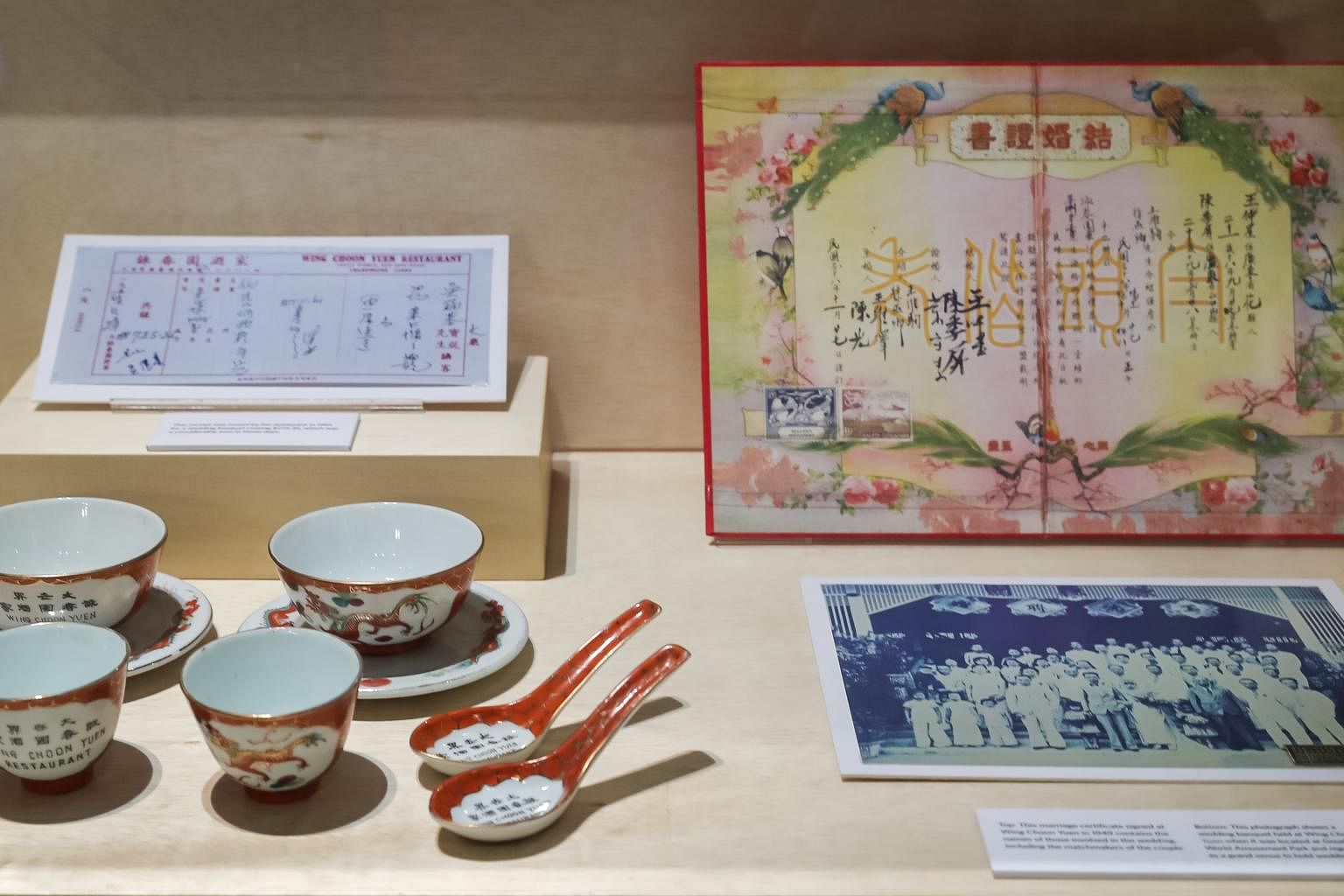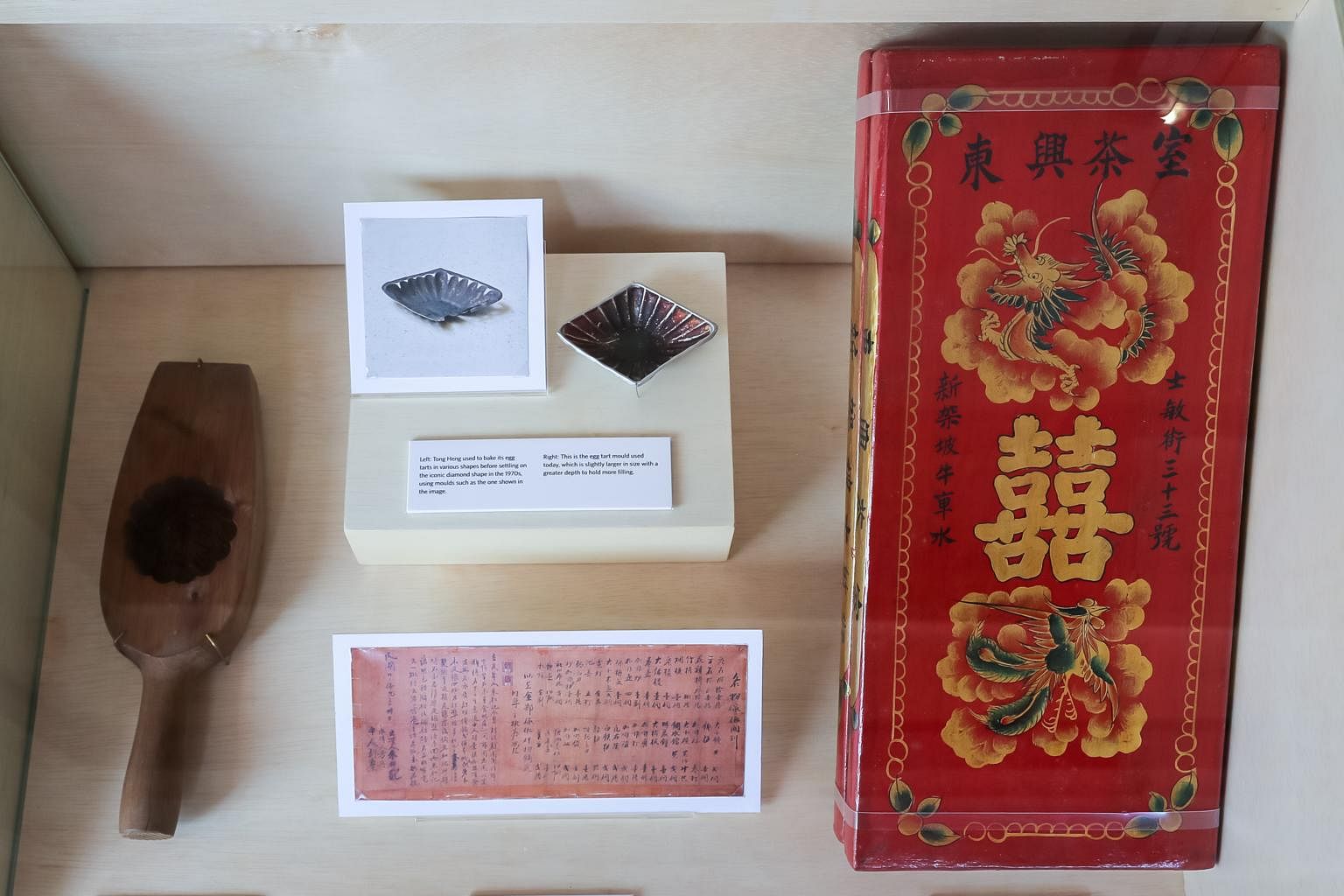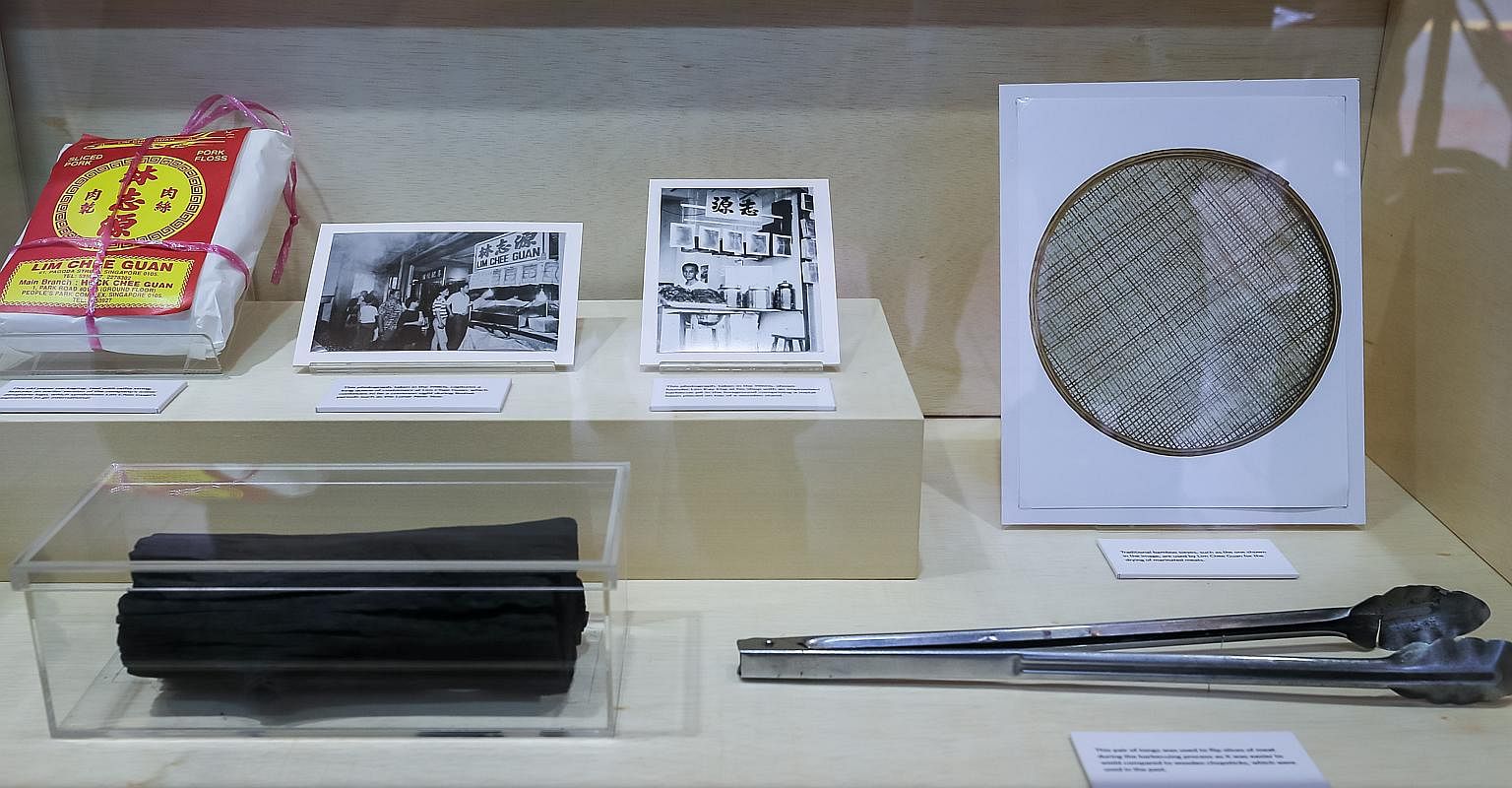NHB's latest on-site heritage galleries feature Chinatown businesses
Sign up now: Get ST's newsletters delivered to your inbox
SINGAPORE - When Spring Court Restaurant, originally known as Wing Choon Yuen, was set up in 1929 by lorry driver Ho Loke Yee at Great World Amusement Park, it quickly established itself as a grand venue for wedding banquets.
Business was so brisk that it hosted up to four wedding banquets a night. The late Mr Ho often had to sleep over at the restaurant on a makeshift bed of dining tables.
It relocated to New Bridge Road in 1978 before moving to Upper Cross Street in 2004. However, artefacts at a "mini museum" in the restaurant still document and celebrate its past history.
These include a 1961 receipt for a wedding banquet costing $725.35 - a huge sum in those days - and a 1949 marriage certificate.
The heritage business is one of 11 featured in the National Heritage Board's (NHB) Street Corner Heritage Galleries in Chinatown that was launched on Thursday.
The scheme started in Balestier in March 2020 and featured five heritage businesses, followed by seven in Kampong Glam in April 2021, and eight in Little India in January this year. The fifth and final one will be rolled out in Geylang Serai in 2023.
NHB works closely with businesses with at least 30 years of history to fill up their "mini-museums" with heritage items.
It also provides funding for them to develop programmes such as talks and workshops, and offers them opportunities to take part in NHB events such as Singapore HeritageFest.
Mr Alvin Tan, NHB's deputy chief executive for policy and community, said the board hopes to raise public awareness of and generate greater support for heritage businesses, and equip them with the skills and experience to better showcase their heritage.
This will also make various precincts "living showcases" of heritage businesses, he said.
Madam Soon Puay Keow, Mr Ho's daughter-in-law and managing director of Spring Court Restaurant, told The Straits Times: "This scheme will help us promote our restaurant to more people, including tourists and the younger generation. As one of the oldest restaurants here, we hope to contribute to Singapore's culinary scene."
The 80-year-old added that the restaurant has evolved from serving Cantonese cuisine to uniquely Singaporean fare that incorporates ingredients from other dialects and races.

But perennial favourites such as the traditional double-boiled chicken with birds' nest remain. The delicacy has been on the restaurant's menu for more than 60 years and takes about eight hours to prepare.
Another heritage brand in Chinatown featured is Tong Heng, famed for its diamond-shaped egg tarts and other traditional pastries.
Founder Fong Chee Heng arrived in the 1910s from Guangdong, China, and bought over the Huang Hou Teahouse, which was later renamed Tong Heng, in Smith Street in 1934. It relocated to South Bridge Road in the 1980s.
Artefacts on display include a 1934 document detailing the transfer of assets of the teahouse to the late Mr Fong.

Tong Heng's fourth-generation successor, Ms Ana Fong, who is in her 50s, revamped the brand in 2018, grew its digital presence and introduced new products such as a plant-based sesame shortcake.
The changes attracted younger front-line staff and customers. However, many of its recipes remain true to its Cantonese roots.
At the heritage showcase of bak kwa shop Lim Chee Guan in New Bridge Road, visitors can see a 1960s photo of founder Lim Kay Eng with an improvised barbecue pit comprising a metal basin on top of a wooden stand.

His son and second-generation owner Rod Lim, 72, said some things have stood the test of time, such as the traditional way the meat slices are roasted over charcoal fire.
"Family, tradition and quality are the three values that will help us uphold the brand's legacy," he said.
Other participating heritage businesses include traditional Chinese medicine retailer Eu Yan Sang, dessert shop Mei Heong Yuen, Pek Sin Choon tea shop and On Cheong Jewellery.


